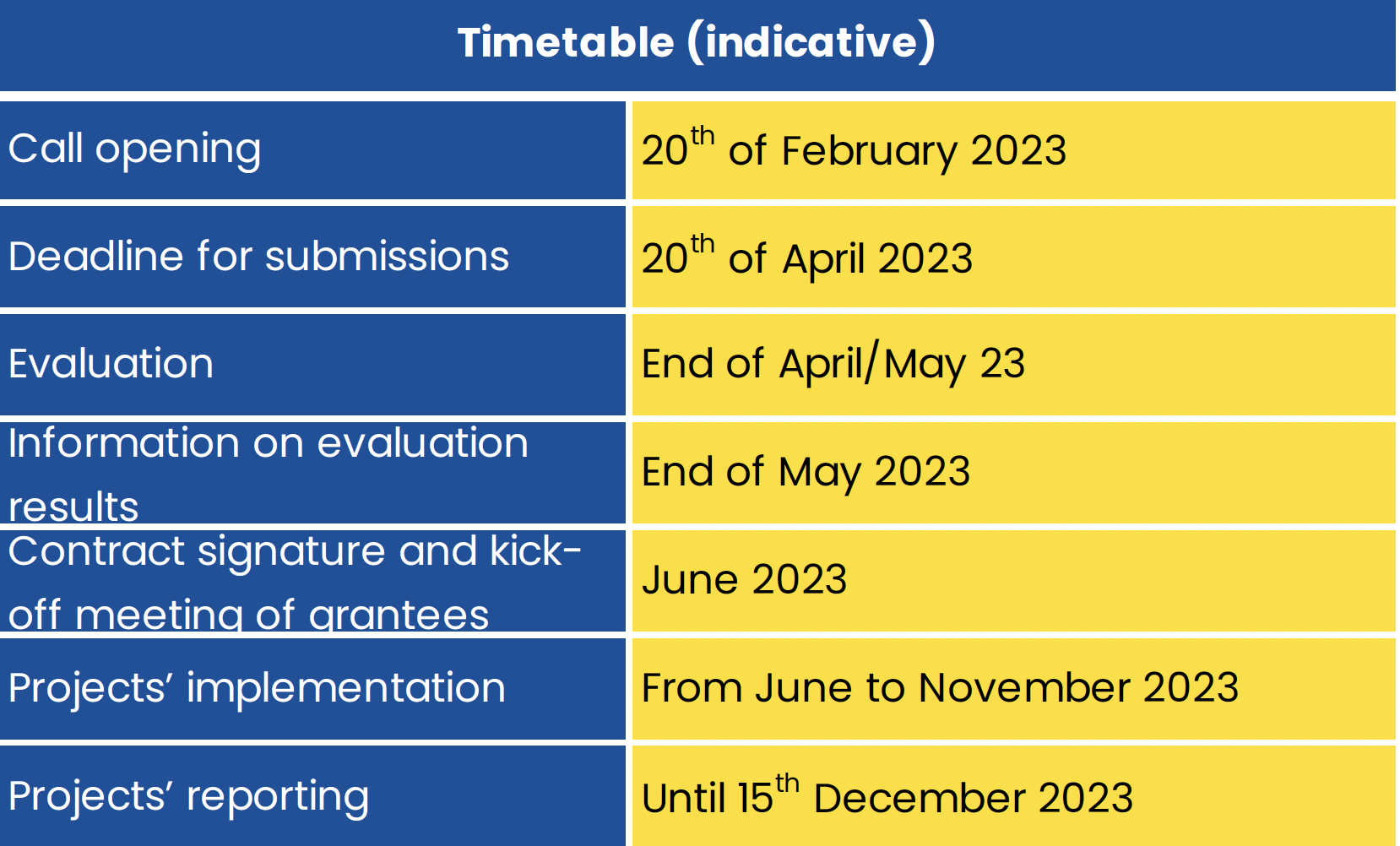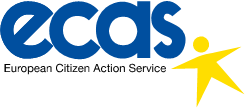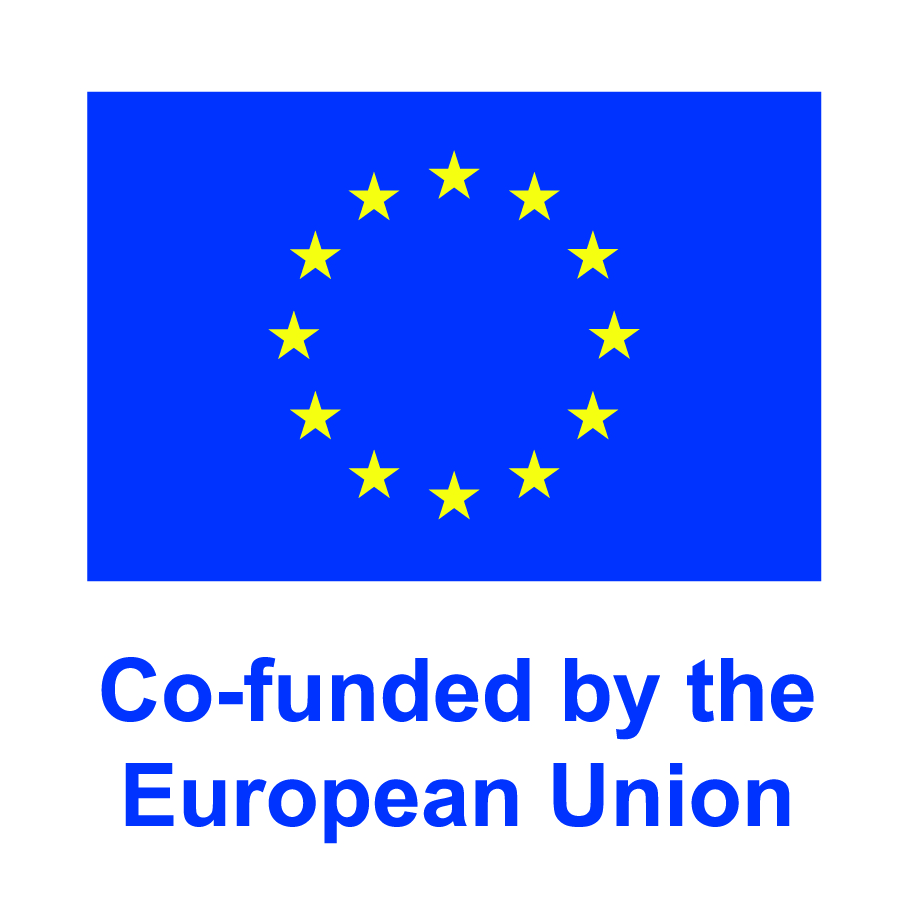Purpose and objectives of the call
The purpose of ECAS re-granting to its members based in the EU is to provide them with an opportunity to contribute to the achievement of the EURECA 2023 objectives, in the areas of Citizenship Rights and European Democracy.
ECAS member organisations’ projects should contribute to the achievement of at least one of the following objectives:
- strengthened capacity to protect and promote EU rights and values;
- more supportive environment for Civil Society Organisations (CSOs) and rights defenders such as national human rights institutions;
- better developed advocacy and watchdog role of CSOs;
- increased involvement of CSOs in policy- and decision-making processes with local, regional and national governments;
- increased citizen awareness of EU rights and values;
- strengthened regional cooperation within civil society.
As the EURECA project, in the framework of which the approved for funding projects of the ECAS’s members will be implemented, is co-funded by ECAS as well, the successful grantees (applicants approved for funding) will be asked to:
– contribute to the ECAS own funding of EURECA 2023 project by allocating to ECAS an amount, equal to 20% of the budget of their projects within 14 days after the signing of the Grant Agreement;
– ensure that their financial contribution to ECAS comes from non-EU funded sources and
– sign a Declaration of Honour, stating the origin of the contributing funds.
The above-mentioned financial contribution of ECAS members would support ECAS in executing state-of-the-art management of the grant-making scheme for members and high-quality Communication and Dissemination activities, including organisation of the introductory meeting for funded projects with all grantees in Brussels.
Financial support available
In 2023 ECAS will regrant the amount of EUR 380,000 and expects to fund about 9-10 projects through:
- Financial support of up to 25 000 EUR for projects implemented at community level or for specific communities (communities are understood not only in geographical sense, but also as identity-based).
- Financial support of up to 60 000 EUR for projects implemented on a national or trans-national level by ECAS members who are network organisations or ECAS members who are individual organisations leading a consortium, including at least two other relevant partners.
The usual project payment scheme will include a pre-payment of 80% of the grant and a final payment (after reporting) of 20% (more details are available in Annex B – Guidelines for Applicants).
Who can apply
- Organisation applying for a grant of up to 25 000 EUR:
All ECAS members that are registered as legal entities, non-profit organisations in a Member States of the European Union, and respect the EU values – with the exception of any member organisation being affiliated entity(ies), branches, associated partners or sub-contractors of ECAS.
- Organisation applying for a grant of up to 60 000 EUR:
ECAS members who meet the above-mention conditions and are either networks of organisations or individual organisations leading a consortium, including at least two other relevant partners.
Projects can be implemented in partnership with other legal entities (public or private bodies), established in the same or in other EU Member States.
What is the funding for?
The following activities taking place in the EU are eligible for financial support in the areas of Citizenship Rights and European Democracy:
- awareness raising and outreach campaigns, including communication and public information campaigns through social media, among the general public and key actors;
- organisation of civic platforms and civic dialogues linked to EU rights and values themes;
- coalitions and partnership-building among CSOs; coordination and strategic cooperation between CSOs and other stakeholders, public or private sector entities;
- watchdog and monitoring activities on EU policies and rights and values;
- training and capacity-building of key stakeholders;
- promotion of adopted policies, legislation and Court practice;
- lobbying/advocacy to influence policy and decision-making processes and practices;
- research and analysis aimed at knowledge building and fostering the development of tools and standards to support EU rights and values.
All projects’ duration should not exceed six months.
All projects should demonstrate a clear European dimension in their activities.
Specific for projects receiving a grant of up to 60 000 EUR: projects under this strand should foresee a national or cross-country coverage, with the aim of creating a wide-scale effect.
After the evaluation of proposals, the results of the call are available here.



